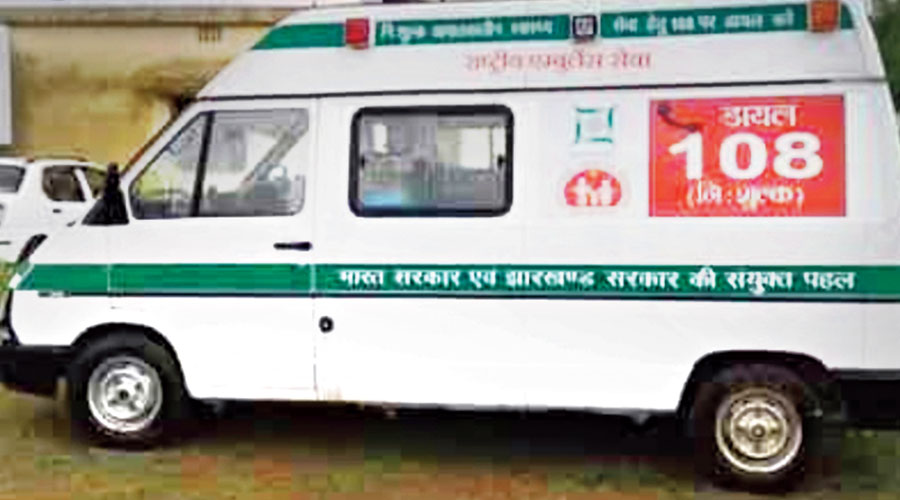The death of a suspected Covid-19 patient in a Jharkhand village on Sunday evening after ambulance drivers allegedly refused to take him to hospital has raised questions about the state’s preparedness to handle coronavirus cases in remote areas.
Ashish Kumar Hansdah, 27, son of Shivlal Hansdah, a farmer in Jhalakdiha panchayat under Bengabad block of Giridih district, had returned by train along with a co-worker from Kerala on Saturday evening.
The village is around 230km northeast of state capital Ranchi.
“Ashish had fever and by Sunday afternoon he started having difficulty in breathing. The villagers dialled the 108 ambulance service of the state health department. Subsequently, an ambulance driver enquired about the youth’s symptoms but refused to take the patient to hospital after learning that Ashish was having difficulty in breathing as he suspected it to be a Covid-19 case.
“We also approached several private ambulance operators but none of them agreed to take him to hospital. He died around 8pm at his house,” said Jhalakdiha mukhiya’s representative Nunulal Murmu.
Villagers said they had also called up the sahiya (rural healthcare worker) but she too refused to cooperate in taking the youth to the community health centre at the block headquarters around 20km away.
Giridih civil surgeon Dr A.K. Sinha said that according to the state government directive 108 ambulance service is only for Covid-19 positive and general patients.
“The 108 ambulance is mandated to carry only coronavirus patients to the nearest Covid hospital or general patients to nearest hospitals. For suspected Covid-19 patients, one has to call the block medical in-charge or the local sahiya.
“The villagers should have alerted the block officials as soon as the migrant worker came back home. We would have sent him to the nearest quarantine centre to get his swab sample tested. We were not informed about his arrival in the village which ultimately led to such an incident,” Sinha said.
When informed that the villagers had contacted the sahiya, the civil surgeon said that an inquiry would be ordered into the incident.
He said villagers had cremated the body of the deceased according to tribal rituals, which was against the Covid-19 protocol, but claimed they had carried out contact tracing of the youth and conducted rapid antigen tests on all the 25 villagers who were in close contact and their Covid-19 reports had come out negative.
“They had buried the body in violation of the protocol on Sunday night. We carried out contact tracing today (Monday) as the deceased had Covid-19 symptoms and all the 25 villagers in his close contact have tested negative for coronavirus, which is a huge relief for us,” said Sinha.
He said after going through the past medical records of the youth (from Kerala hospitals), they have found that he was suffering from liver cirrhosis.
Giridih deputy commissioner Rahul Sinha also promised a probe into the incident.
“The 108 ambulance driver should not have refused to take the patient to hospital. We will carry a probe into the incident,” the deputy commissioner said.
Jharkhand on Sunday had a total of 12,882 Covid-19 cases and 122 deaths. In Giridih district, there are 610 positive cases and no casualty so far.











